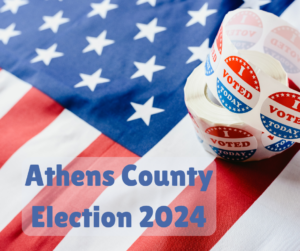Portman and Brown Lead 54 Senators In Urging Administration to Protect American Jobs
 Washington, D.C. – Today, U.S. Sens. Rob Portman (R-Ohio) and Sherrod Brown (D-Ohio) led 54 of their colleagues in calling on the Administration to protect American steel manufacturers and the jobs they support. Portman’s and Brown’s efforts come in advance of a major trade case before the U.S. Department of Commerce (DOC) that involves Oil Country Tubular Goods (OCTG). OCTG are used for domestic oil and gas exploration—especially shale—and are produced by Ohio companies U. S. Steel in Lorain, Vallourec Star in Youngstown, Wheatland Tube in Warren, and TMK IPSCO in Brookfield. The Senators urged DOC to closely consider the facts of the case and fully enforce our trade laws to ensure American businesses and workers are not harmed by these imports.
Washington, D.C. – Today, U.S. Sens. Rob Portman (R-Ohio) and Sherrod Brown (D-Ohio) led 54 of their colleagues in calling on the Administration to protect American steel manufacturers and the jobs they support. Portman’s and Brown’s efforts come in advance of a major trade case before the U.S. Department of Commerce (DOC) that involves Oil Country Tubular Goods (OCTG). OCTG are used for domestic oil and gas exploration—especially shale—and are produced by Ohio companies U. S. Steel in Lorain, Vallourec Star in Youngstown, Wheatland Tube in Warren, and TMK IPSCO in Brookfield. The Senators urged DOC to closely consider the facts of the case and fully enforce our trade laws to ensure American businesses and workers are not harmed by these imports.
“We write to express our concerns with the Commerce Department’s preliminary determination in the antidumping investigation of Oil Country Tubular Goods (OCTG) imports from Korea,” the lawmakers wrote. “This case has nationwide economic implications, and any final determination must be based on accurate data and objective methodologies. As the Department continues the investigation, we ask that you fully consider the domestic industry’s allegations and take action against any unfair dumping to the fullest extent of the law.”
Steel produced for the U.S. energy market, such as OCTG, accounts for approximately 10 percent of domestic steel production and nearly 8,000 American jobs across the country. U.S. producers, however, are increasingly losing sales to foreign competitors because imports of OCTG have doubled since 2008 and increased by 61 percent thus far in 2014 compared to 2013. By some accounts, OCTG imports represent 50 percent of the pipes used for gas and oil drilling in the United States.
DOC is investigating the dumping, or intentional underselling, of OCTG into the U.S. market from nine countries, including India, the Philippines, Saudi Arabia, South Korea, Taiwan, Thailand, Turkey, Ukraine, and Vietnam. In its preliminary ruling, DOC found that the imports of eight countries were dumped in American markets, resulting in duties of about three to 118 percent being levied on their OCTG imports. DOC failed, though, to identify South Korea as dumping despite a majority of OCTG imports deriving from there, and strong concerns being raised about their practices violating trade rules. South Korean OCTG imports, in fact, have recently increased by 40 percent and account for 20 percent of U.S. consumption.
Portman and Brown have remained closely involved in this case. Today’s effort follows a similar Portman/Brown letter in 2013 raising concerns about this case and its importance to Ohio workers.
Portman and Brown continue to fight for Ohio’s workers and its steel and manufacturing industries. In February 2014, the Senators successfully urged DOC to protect Ohio based companies from illegal Chinese trade practices by maintaining antidumping duties (AD) and countervailing duties (CVD) on Chinese steel pipe imports. The final ruling was the culmination of months of efforts by Portman and Brown on behalf of Ohio steelmakers.
Portman’s and Brown’s letter to DOC Secretary Penny Pritzker can be read in its entirety below:
The Honorable Penny Pritzker
Secretary of Commerce
U.S. Department of Commerce
14th Street and Constitution Avenue, N.W.
Washington, D.C. 20230
Dear Secretary Pritzker:
We write to express our concerns with the Commerce Department’s preliminary determination in the antidumping investigation of Oil Country Tubular Goods (OCTG) imports from Korea. This case has nationwide economic implications, and any final determination must be based on accurate data and objective methodologies. As the Department continues the investigation, we ask that you fully consider the domestic industry’s allegations and take action against any unfair dumping to the fullest extent of the law.
Steel produced for the U.S. energy market, such as OCTG, accounts for approximately ten percent of domestic steel production, and U.S. OCTG producers employ nearly 8,000 workers across the country. Each one of those jobs, in turn, supports another seven jobs in the OCTG supply chain. U.S. demand for OCTG products has been rising, but our U.S. producers are increasingly losing sales to foreign competitors. Imports of OCTG have doubled since 2008 and increased by 61 percent thus far in 2014 compared to the previous year. By some measures imported OCTG products account for more than 50 percent of the pipes being used by companies drilling for gas and oil in the U.S. One steel company has already reduced hours at three American facilities and idled another as a result of growing OCTG imports. We have been told that more reductions and layoffs could occur.
Korea has one of the world’s largest steel industries but no domestic OCTG market. The result is that Korean producers are exporting an increasing volume of OCTG to the United States. We ask the Department to closely verify and further analyze the information submitted by the Korean producers to ensure its accuracy. We are concerned that certain information used for the preliminary determination did not fully reflect the costs of production and sales for the Korean producers, such as profit information based on lower valued pipe products and certain affiliation issues that may impact which sales are used as the basis for the dumping calculation. As this case proceeds, we urge you to ensure that the Department’s investigation is objective and accurate.
The discovery and production of shale gas in the United States is a strategic benefit for both America’s economic and energy security. Addressing unfairly traded imports is essential to ensuring that U.S. OCTG producers have a level playing field on which to compete. Strict and full enforcement of our trade laws is essential for the future of this important industry, its workers, and steel communities throughout the country.
Thank you for your attention to this important matter.









